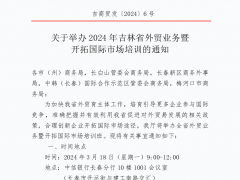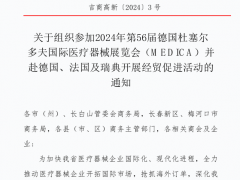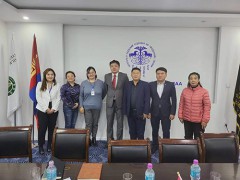China and Germany will promote practical cooperation in manufacturing
Zhao Junjie, a researcher at the Institute of European Studies of the Chinese Academy of Social Sciences, agreed with this judgment, saying that Gauck's visit to China will help promote practical cooperation between China and Germany in the manufacturing industry.
Therefore, during President Gauck's visit this time, I believe that China and Germany will take some concrete measures in the industrial revolution, including the establishment of a broader research and development platform, personnel exchanges, and participation in the research and development of common topics.
In October last year, German Chancellor Angela Merkel paid an official visit to China, and "innovation" became an important topic of dialogue between the two countries. The relevant organizations of the two sides have also made it clear that Northeast China will be an important base for cooperation, supporting enterprises of the two sides to participate in the construction of the China-Germany equipment Manufacturing Industrial Park (Shenyang), and creating a cooperation platform for the docking of "Made in China 2025" and "German Industry 4.0".
The development of intelligent manufacturing between China and Germany has convergence points
So, in what areas can "Made in China 2025" and Germany's "Industry 4.0" be connected? Germany's "Industry 4.0" concept believes that the Internet of Things and manufacturing services announce the arrival of the fourth industrial revolution. Taking "Internet Plus" as the core and promoting the deep integration of informatization and industrialization is also the main line of promoting "Made in China 2025". Chen Yao, a researcher at the Academy of Industrial Economics of the Chinese Academy of Social Sciences, said that the general direction of the development of intelligent manufacturing is the same.
Chen Yao: The general direction is the same, that is, to achieve intelligent manufacturing, there are ten areas in the specific direction, and Germany has some advantages in many aspects. Including high-end equipment manufacturing, robotics, a new generation of information technology, new energy, new materials, and so on, there is a need for cooperation.
The transformation and upgrading of the manufacturing industry is also the meaning of the new economy
"Internet +" has been included in China's national strategy since 2015. After more than a year of development, it has driven the deep integration of traditional industries and the Internet, created new products, new technologies and new models, brought new development opportunities to entrepreneurs, and also brought great changes to people's way of life. In the next 10 years, it is expected that the industrial Internet alone will bring more than 6 trillion yuan of GDP growth.
This year's "Government Work Report" also proposed an upgraded version of "Internet +" - "new economy".
李克强:“新经济”的覆盖面和内涵非常广泛,涉及一、二、三产业,不仅仅是指三产中的“互联网+”、物联网、云计算、电子商务等新兴产业和业态,也包括工业制造当中的智能制造、大规模的定制化生产等。
The development of the "new economy" is to cultivate new drivers and promote China's economic transformation, and the transformation and upgrading of the manufacturing industry is also the meaning of the topic.
The contradiction between supply and demand is the pain point of China's manufacturing industry
Speaking of which, we should look at a set of data: in the past four years, Chinese residents' overseas consumption has increased by an average of more than 25%, and last year, China bought 46% of the world's luxury goods. Behind this set of data, is the pain point of China's manufacturing industry - production and consumption are facing a serious contradiction between supply and demand, on the one hand, there is a serious surplus of low-end supply, on the other hand, the high-end demand can not be met.
Learn innovation from the United States, learn refinement from Germany and Japan
So, in the process of our development from a manufacturing country to a manufacturing power, what can we learn from Germany, Japan and the United States, which are located in a echelon of the world's manufacturing power?
Chen Yao, a researcher at the Academy of Industrial Economics of the Chinese Academy of Social Sciences, believes that innovation should be learned from the United States, and intelligence and refinement should be learned from Germany and Japan.
Chen Yao: The advantage of the United States is mainly in the field of research and development, and the core technology is basically controlled by the United States. From the product point of view, Germany, Japan's manufacturing capacity, the degree of product refinement, are relatively high. And many of our products, materials are very good, the process is also OK, that is, fine, and Germany, Japan gap is still very big.
Mr Wu suggests reviving artisan traditions
When it comes to product refinement, financial commentator Wu Bofan warns that Chinese manufacturing should revive the artisan tradition.
Wu Bofan: The older the more valuable, in China has long passed, in Shenzhen Dongguan manufacturing workers, over 21 years old feel very old, is a rough processing, so talk about upgrading is not to talk about. Go to Germany, Switzerland, and Japan, and his tradition is still alive. Like Japan's lifetime employment process, the tacit knowledge in manufacturing, the skills that have been deposited over time, and even wisdom are passed on. Only under such a premise, Chinese manufacturing can be compared with others.
"Internet Plus" creates intelligence
To achieve the intelligent manufacturing industry, financial commentator Wu Xiaobo believes that the transformation and upgrading of enterprises lies in the "Internet +".
Wu Xiaobo: Every enterprise, whether it is selling flowers, making jeans, making cars or making drinks, must use information technology to transform every process inside the enterprise. Second, the use of information technology to transform the relationship between enterprises and consumers, which is a process of transformation. The so-called upgrade refers to whether we can provide suitable products for the rational consumption of the middle class.
 Customer service hotline:
Customer service hotline:



